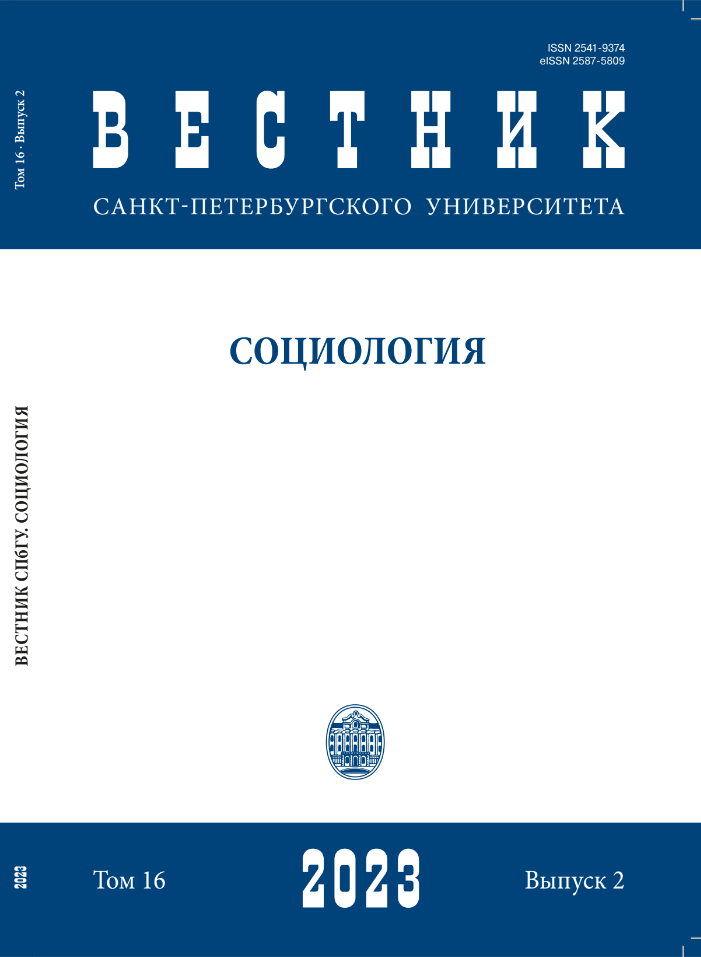Poverty in the Yakut Arctic — the experience of sociological research
DOI:
https://doi.org/10.21638/spbu12.2023.206Abstract
The article is devoted to one of the main topics of sociology and economics — poverty and the problems of its measurement. The relevance of the topic is determined by the fact that at each new stage of the development of society, the sets of consumer goods, the thresholds for the consumption of the population are changing, therefore adequate criteria for the analysis of poverty are required. The article examines the evolution of the views on poverty of domestic and foreign scientists, focusing on new factors of income stratification: territorial factor, factor of social inclusion, spatial configuration of inequality. At the empirical level, the results of monitoring, which was conducted for several years in 13 Arctic regions of the Republic of Sakha (Yakutia), are analyzed. The purpose of this study is to create a profile of a poor person in the Arctic (Republic of Sakha (Yakutia)) based on the results of the project “Man in the Arctic” (conducted by the Center for Strategic Studies under the Head of the Republic of Sakha (Yakutia)) and a number of studies conducted at the North-Eastern Federal University named after M.K.Ammosov and to study the determinants and correlates of poverty at the micro level. Accordingly, the subject of the study is the region of the Arctic zone of Russia, in particular, 13 districts that are part of the Republic of Sakha (Yakutia). The subject of the study is the profile of a poor person in the Arctic, the main characteristics of social inequality in the Arctic zone of the Republic of Sakha (Yakutia). Based on analysis of statistical data, the results of sociological research, mathematical and statistical analysis of primary data, a generalized, enlarged portrait of a poor man in the Arctic was compiled. The perception of the own position of the population of the Arctic regions, self-identification is one of the important aspects of measuring poverty
Keywords:
poverty, measurement criteria, Arctic zone, survey, mathematical and statistical analysis, social portrait, self-identification of the poor, consumer behavior, social exclusion, transport discrimination
Downloads
References
no. 9 (1). https://doi.org/10.1525/elementa.2020.00162
Downloads
Published
How to Cite
Issue
Section
License
Articles of "Vestnik of Saint Petersburg University. Sociology" are open access distributed under the terms of the License Agreement with Saint Petersburg State University, which permits to the authors unrestricted distribution and self-archiving free of charge.




